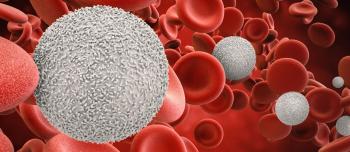In a study published in the August Journal of Pediatric and Adolescent Gynecology, researchers from the Royal Free Hospital (RFH) in London reviewed the management and treatment outcomes in adolescents with inherited bleeding disorders and menorrhagia (excessive menstrual bleeding). The lead investigator was Claudia Chi, MBBS,Department of Obstetrics and Gynaecology, RFH.
The study incorporated a retrospective review of case notes and a questionnaire from 153 girls (ages 12 to 19) with an inherited bleeding disorder. The girls had been patients in the Katharine Dormandy Haemophilia Centre and Thrombosis Unit at RFH. Of the total, 42 (27%) attended a “multidisciplinary” clinic for management of menorrhagia. Of that group, 5 (12%) required hospital admission for acute menorrhagia and severe anemia.
Treatment options for menorrhagia included tranexamic acid, desmopressin, combined oral contraceptive pills, clotting factor concentrate and the levonorgestrel intrauterine system (an intrauterine device). These treatments, whether administered alone or in combination, helped reduce menstrual bleeding and increase quality of life scores.
“Menorrhagia is a common symptom in adolescents with inherited bleeding disorders. It can present acutely, and it adversely affects quality of life. Treatment options include hemostatic and/or hormonal therapies and can improve the quality of life of affected girls,” concluded the authors.
The study, “Menorrhagia in Adolescents with Inherited Bleeding Disorders,” was published in the August 2010 issue of the Journal of Pediatric and Adolescent Gynecology.





